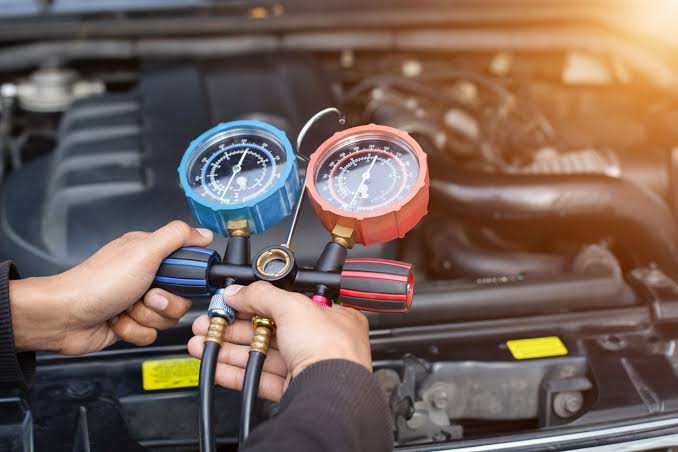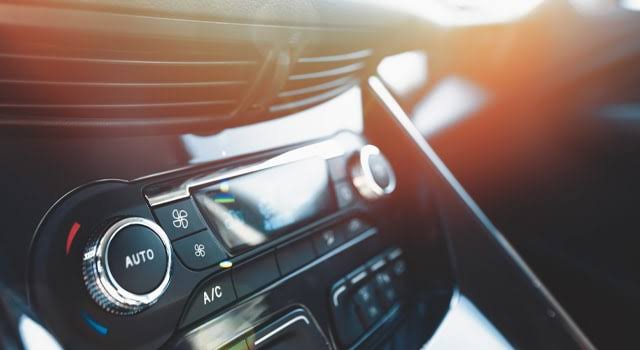Does Running Your AC Use More Gas?

Running your car’s air conditioner (AC) can be a lifesaver on hot days, but many drivers wonder: does running your AC use more gas? The short answer is yes, but the amount depends on various factors like your vehicle type, driving conditions, and how you use the AC. This article breaks down how AC affects fuel consumption, when it’s most efficient to use it, and tips to stay cool without burning extra gas.
How Does Your Car’s AC Work?
To understand how the AC impacts gas consumption, it’s important to know how it functions:
1. The Compressor
- The AC system relies on a compressor, which is driven by the engine via a belt.
- The compressor compresses refrigerant, cooling the air that enters the cabin.
2. The Engine’s Role
- Since the compressor is powered by the engine, using the AC increases the engine’s workload.
- This additional workload results in higher fuel consumption.
Does Running the AC Use More Gas?
Yes, running the AC requires extra energy, which can lead to higher gas consumption. However, the extent varies based on factors like speed, outside temperature, and your vehicle’s efficiency.
1. Fuel Consumption at Idle
- When the car is idling, running the AC can increase fuel usage by up to 10-20%.
- The engine works harder to power the compressor without the momentum of driving to offset the load.
2. Fuel Consumption at Highway Speeds
- At higher speeds, the increase in fuel consumption from using the AC is less noticeable.
- Modern vehicles are designed to minimize the impact of AC use during highway driving.
3. Impact on Smaller Engines
- In cars with smaller engines, the AC’s load is more significant, causing a noticeable drop in fuel efficiency.
- Larger engines handle the additional load more efficiently.
How Much Gas Does AC Use?
The additional fuel consumption caused by AC usage depends on several factors:
1. Driving Speed
- At low speeds, the engine must work harder to power the AC, resulting in greater fuel consumption.
- At higher speeds, the impact of the AC is less significant compared to wind resistance.
2. Outside Temperature
- On extremely hot days, the AC must work harder to cool the cabin, using more fuel.
3. Duration of Use
- Prolonged use of the AC increases overall fuel consumption compared to intermittent use.
When Is It Better to Use the AC?
1. At High Speeds
- Driving with the windows down at high speeds increases aerodynamic drag, reducing fuel efficiency.
- In such cases, using the AC is often more fuel-efficient than driving with open windows.
2. At Low Speeds
- When driving in stop-and-go traffic or at low speeds, opening the windows may save more gas than running the AC.
Tips to Minimize Fuel Consumption When Using the AC
1. Use the AC Sparingly
- Avoid running the AC at full blast unless necessary.
- Use the recirculation mode to maintain cool air more efficiently.
2. Park in the Shade
- Parking in shaded areas or using a sunshade keeps your car cooler, reducing the AC’s workload.
3. Ventilate Before Turning On the AC
- Roll down the windows to release hot air from the cabin before turning on the AC.
4. Keep the AC Maintained
- Regularly service the AC system to ensure it operates efficiently.
- Check refrigerant levels and replace the cabin air filter as needed.
Common Questions About AC and Fuel Consumption
1. Does running the AC waste a lot of gas?
Running the AC increases gas consumption, but the impact is usually modest—around 5-10% under normal conditions.
2. Is driving with the windows down better than using the AC?
At low speeds, driving with the windows down is more fuel-efficient. However, at high speeds, it’s better to use the AC to reduce drag.
3. Can using the AC damage the engine?
No, modern engines are designed to handle the additional load from the AC.
4. How does the AC affect hybrid or electric vehicles?
In hybrids and EVs, the AC uses battery power, which can reduce overall range rather than affecting fuel consumption.
5. Does the AC work better while driving?
Yes, the AC is more efficient when the car is in motion, as the engine provides more power to the compressor.
Conclusion
So, does running your AC use more gas? The answer is yes, but the extent varies based on driving conditions and vehicle type. While the AC adds a slight load to the engine, its impact on fuel consumption is usually modest.
To minimize gas usage, use the AC efficiently, maintain your vehicle, and adapt your cooling strategies based on driving speed and conditions. By balancing comfort and efficiency, you can stay cool without significantly impacting your fuel budget.
Also Check:
• Does Using Air Conditioning Affect Gas Mileage?




